- Home
- Roger Taylor
Caddoran Page 36
Caddoran Read online
Page 36
It took her a long time and more blows to the unoffending upholstery before she calmed sufficiently to think clearly about what was happening and what she must do.
It was a time of risk, that was all. And the coming of such a time had been seen as inevitable from the beginning, even though its precise nature could not be foreseen. And too, Vashnar was more used to risks than she was. His judgement in matters of immediate action could be trusted, she knew. As for discovering that he was a man of destiny, she had always known that.
She immersed herself in the details of the tasks he had asked her to perform, resolved now. She had all his authority. There would be no faltering on her part and she would ensure that there would be none by any of his supporters.
As Vellain’s coach and escort galloped south, like the skittering pebbles that would unleash an avalanche, Vashnar was leading his Tervaidin west towards the mountains, his every sense attuned to the call that was luring him on.
Chapter 25
Conglomerations of people – towns, cities, countries – are strange. Minute by minute, hour by hour, day by day, thousands live their lives in a continual flurry of endlessly interweaving and varying activities, yet the whole changes little. The ceaseless bustle of ordinary people living ordinary lives somehow conjures into being a dynamic equilibrium which, once established, is seemingly immune to the countless inner changes that comprise it. Within this shifting stability grows the perception that cause and effect are related in extent as well as by their very nature; a small cause yields a small effect, a large cause, a large effect. Yet, like many apparently obvious perceptions, this is flawed. There are times when a body which has indeed demonstrated a small effect to a small cause on many occasions without injury will, for no immediately discernible reason, suddenly respond catastrophically – a hillside crashes down into the valley, a warming coastal current drifts away, nourishing annual rains fall elsewhere, a crop-destroying chill comes prematurely – a society disintegrates.
As in most long-settled communities it was taken for granted by the Arvens that what had been, would always be, and that this truth was in some way independent of their actions as individuals. The Moot, with its rambling statutes and eccentric procedures, could be safely dismissed as a frothy irrelevance, and the Warding could be accepted as a broadly worthwhile institution despite the corruption of the Gilding and the fact that many of its officers routinely administered their own forms of summary justice. But any society that scorns the leaders it chooses and fails to watch those who watch over it, nurses flaws that are deep and dangerous.
For the Arvens, these flaws now began to appear.
The proclaiming of the Death Cry, the appearance of the Tervaidin, and Vashnar’s sudden departure from the city, had set in train a gathering hailstorm of stinging, anxious rumours. Once, these might have faded, melted into nothingness by the touch of common sense and goodwill, but now, tap tap tapping like a fore-echo of Vashnar’s intended hammer-blow, they added the final splitting shock to the long over-strained sub-strata that sustained Arvens’ society. As ever, the first to yield was the subtle fettering that restrains the darker natures of individuals and which allows them to live together in comparative peace. Wardens began to report an unexpected increase in violent assaults. Then they began to fret over them.
Bewildered. ‘It makes no sense.’
Blind. ‘One of those things. It’ll pass.’
Shrewd. ‘It’s been getting worse for years, now it’s getting out of hand.’
Inept. ‘The Moot should give us more power.’
Plaintive. ‘Vashnar should be here, not gadding off on a holiday.’
The patent inadequacy of their own trite debate added to the growing sense of unease.
And once Vellain had passed on Vashnar’s order to begin his move against the Moot, unusual activities were noted and no amount of security could stop further rumours scudding wildly over the unrest, agitating it further.
Groups of people began to gather uncertainly.
* * * *
By some strange osmosis, the general unease had even managed to spread into the Moot.
There was uproar. Striker Bowlott was furious, stamping his feet and pummelling the cushions which padded the arms of Marab’s Throne. In his official position, standing slightly to one side and behind the Throne, Krim was holding himself more stiffly than ever in an attempt to stop the twitch that was struggling to take command of his left cheek. He was failing and his facial contortions were attracting the attention of some of the nearby Senators, who used the general din to cover their own considerable amusement. That Krim was aware of this unwanted ridicule did little to ease his predicament, but his dominant concern was for his charges. The blanching touch of the sun was wreaking relentless havoc in the Repository. Now they were being trampled underfoot and clawed at by Bowlott. Krim found his gaze being drawn inexorably towards the Blue Cushion underneath the Throne.
The cause of the uproar and Bowlott’s frenzy was a new Senator – not a Moot General member, but an Outer Moot Senator no less. His name was Draferth and, unusually for the Outer Moot, he was a staunch and raucous member of the Strivers Faction. But then everything about Draferth was unusual, Bowlott had reflected more than once since he had arrived to take up his seat. Not the least of Bowlott’s complaints about him – and Welt’s and Bryk’s, his ostensible leader – was that he seemed to be completely oblivious to the nuances of the Moot’s intricate proceedings. For one thing, he possessed an almost overwhelming obsession with the views of his electors – a trait which was well-known to be highly undesirable in a Senator. How could a man preserve any sense of objectivity in handling matters of social consequence if he kept listening to the people who would be affected by it?
The very manner of his gaining his position was a measure of his unsuitability. His predecessor had vacated his seat in circumstances which had united the Moot in their efforts to garnish his name with honour and praise. The unexpected and noisy arrival of his wife at a house of interesting repute which he was visiting ‘on Moot business’, had coincided with his attempt to test an emergency exit from a first-floor window. Unfortunately, in the confusion between fulfilling his Moot duties and greeting his dutiful and concerned spouse, he stepped through the wrong window and fell into a manure cart. Subsequently there was some debate as to whether his death was due to the fall or his lying face downward in the ordure for a prolonged period, but either way there was enough uncertainty, in the local Wardens’ view, to exonerate the short-sighted farmhand who eventually unloaded him with the aid of a pitchfork.
The seat had been held by the Keepers for as long as anyone could be bothered to remember and Draferth had been offered the position as the Strivers’ representative in the Little Acclamation that followed, solely in the hope that he would be humiliated by the Keepers’ representative – a man of towering patrician dignity whose contemptuous disregard for the views of others would make him an ideal Senator. In this, however, they had underestimated Draferth’s wilful nature and, in a quite unprecedented manner, he had actually sought out the favours of his would-be electors. Consequently, attendance at the Little Acclamation had been unusually high, no less than one in fifteen of those eligible making themselves heard, and Draferth had been swept to victory on a tide of indifference.
All bad enough in itself, Bowlott and the Inner Moot members had agreed, but the Moot was a stern and ancient institution. Its elaborate proceedings and rituals were ideally suited to crushing independence and rational thought in newcomers.
And indeed Draferth had suffered some harrowing humiliations within days of arriving at the Moot. So much so that he had eventually retreated into a surly silence. Bowlott had warmed to him a little at this; it was the Moot’s protective embrace – all part of the young man’s maturing.
Now however, Draferth was on his feet and causing real trouble.
‘Down! Down!’ Bowlott was screeching, trying to make himself heard above every other S
enator shouting the same. In the end, he stood up and raised his staff to strike the floor. In his haste he neglected to step down from his footstool and he staggered as he drove the staff vigorously down towards a floor which was some distance below where he expected it to be. Krim’s twitch spread to both cheeks at this reckless treatment of his handiwork.
It was Bowlott’s near tumble that brought a silence to the Moot Hall – part of it a shocked hush, part of it smothered laughter.
Bowlott levelled the staff at Draferth. ‘Senator, I ordered you Down, did I not?’
Barking tones of agreement came from the Hall generally, and from Welt and Bryk particularly.
‘I will not yield, Striker,’ Draferth shouted. ‘Nor need I. I have the right to be heard.’ He touched the red kerchief wrapped untidily around his head.
Bowlott’s hands began to emulate Krim’s face as they opened and closed about the staff in frustration. It did not help that a few isolated voices were also being raised in agreement with this protestation. Welt and Bryk and their immediate underlings swivelled in their seats in an attempt to search out the guilty parties, but to no avail. Glowering, Bowlott sat down again, unable to prevent himself emitting a petulant snort.
The damned upstart was right! Normally, speakers in the Moot were chosen by Bowlott who, unless he had some scheme of his own afoot, usually worked from a list supplied to him by the faction leaders. Technically, however, anyone wearing Akharim’s Kerchief was entitled to talk on any subject for as long as they wished – Krim flinched openly as Bowlott ground his foot into the stool. It was Welt’s fault, for sure. It was not possible to set aside this peculiar practice, it was too well defined in the Treatise, but it was a long-established, if unstated agreement that Welt, as the leader of the Keepers, the Moot’s dominant faction, would look to the ‘safe-keeping’ of Akharim’s Kerchief – ‘for the general well-being and smooth managing of the Moot’.
Now, somehow, Draferth – of all people – had the thing! There was no saying what the day’s business was going to degenerate into; Draferth was young enough to stand there for hours and he was capable of saying anything! Still, Bowlott began to muse darkly, when the wretched man had finished his antics, he would ensure that he suffered for it. And for a long time. And that oaf, Welt, too, for letting this happen. The prospect made him feel a little easier. Something useful could probably be salvaged from this if he kept his wits about him. Tentative plans began to form. Firstly he would have to find out exactly what had happened – it was obviously an action ‘liable to bring the Moot into disrepute’. Then he would have to decide what to do about it. Once that was done, he could set up an Official Inquiry to produce this decision as an ‘independent’ conclusion. All quite routine, really. In the meantime he had to get through whatever it was that Draferth was going to rant about. It was not an edifying prospect. He began picking irritably at the cushion under his right hand. As the stubby nails began to snag at his precious stitching, Krim gave up all attempt at restraining his twitching face.
‘Continue,’ Bowlott snapped churlishly.
‘Thank you, Most Worthy Striker,’ Draferth said with cold insincerity.
‘Get on with it,’ several Senators called out at once.
Resting his head on his hand, Bowlott casually covered his mouth to prevent any sign of amusement showing; however the man had won the opportunity to speak without restraint, let him see if anyone would be prepared to listen. And let him find out how difficult it would be even to speak once the Striker eased his firm grip on the proceedings.
‘Worthy and most worthy Senators,’ Draferth began.
The sound of sheep penetrated the momentary lull that followed. More than a few Senators took considerable pride in the accuracy of the animal noises which they could offer to the Moot’s debate, some even seeking private tuition from public entertainers. It provoked the inevitable jeering laughter, but there were also some angry voices raised. Bowlott frowned and his eyes flicked rapidly from side to side in search of the culprits. In the course of this he scowled at Welt and Bryk. What were these two playing at? First the Kerchief fell into the wrong hands, now it seemed that Draferth had actually got allies in the Hall. Bowlott’s mouth tightened.
Draferth, obviously unsettled by the opposition he was meeting, but grimly determined to speak, turned towards the offender. ‘We’ll see who’ll be the shorn and who the shearer when this matter is over,’ he said, to a chorus of catcalls and further farmyard impressions.
He turned a look of unconcealed scorn on Bowlott.
‘Most Worthy Striker, I shall say what I have to say. If the Worthy Senators choose not to listen then the consequences will be on their heads.’ His voice was unexpectedly powerful and the Hall fell silent. Bowlott made no acknowledgement and Draferth continued. ‘I sought Acclamation to this place because for as long as I can remember, I have revered the principles which its existence enshrines.’ He leaned forward. ‘And because, for as long as I can remember, it has relentlessly turned its face away from these principles.’ An ominous murmuring began, but he ploughed through it. ‘So much so that the Moot has become a by-word for folly and irrelevance, and the very word “Senator” is used as an expression of the utmost contempt.’ He pointed angrily towards the main entrance. ‘Out there, tens of thousands of ordinary people – the people whose taxes and tithes pay our stipends and who trust us with their authority – are looking to us for leadership. Morlider threaten our shores, the loss of trade and commerce with Nesdiryn has destroyed the livelihoods of hundreds of…’
His voice disappeared under the mounting clamour. Watching him impassively, Bowlott made no attempt to end the din. Draferth’s voice broke through briefly. ‘A dark unease is stalking the highways of our land, we ignore it at…’ but the words were lost again and, after a moment, he stopped speaking. Slowly the cacophony of shouting and abuse faded away. As it did so, Draferth looked down at the sheaf of papers in his hand. Then he bared his teeth in a snarl of determination. ‘Very well, Worthy Senators. I had hoped, against my wiser judgement, I concede, that perhaps once – just once – this gathering of the people’s representatives would set aside its childish antics and listen to a measured account of the dangerous events that are unfolding beyond the sheltered folly of this Hall.’
Someone blew a raspberry. Draferth closed his eyes and took a deep breath. ‘However, I see all too clearly that this was not to be. So I will go directly to the heart of my intention. I hereby move that Senior Warden Commander Vashnar be indicted for abuse of power, for seeking to instigate the murders of citizens of goodwill in proclaiming the Death Cry, and for instituting the formation of…’
Where before there had been uproar, now there was pandemonium. Virtually every Senator was standing, shouting and waving, demanding the right to speak. Even the hardier ones were waking. Bowlott himself was about to jump to his feet but he remembered his previous misfooting and hesitated. The pause gave him time to note the mood of the gathering. It was beyond anything he could hope to control and it would only serve to undermine his own authority if he stood up now and struck his staff for silence. He would maintain a dignified silence of his own, though it was not easy. Akharim’s Kerchief gave privileges to the wearer, but this was madness. Had the man no semblance of a sense of proportion? He must be raving mad! He looked closely at Draferth. The man seemed almost relieved by what he had done. Bowlott’s eyes narrowed. Lacing through the noise he could again hear angry voices shouting that Draferth be allowed to continue. He cursed himself. Draferth was definitely not alone. It was a conspiracy, and he’d caught not even a breath of it! His anger redoubled. He’d roast Welt and Bryk for this in due course. How could they have been so inept as to let such a thing come to pass? With an effort he dismissed his future vengeance and turned to what this conspiracy might be in aid of. It defied him. Surely Draferth was not looking for a position in the Inner Moot? And who would back him in such an attempt?
Foundering against Draferth�
�s continuing indifference, the noise was beginning to subside. Picking his moment carefully, and equally carefully stepping off his footstool, Bowlott stood up and struck his staff on the floor. Silence came almost immediately and all eyes were suddenly turned to him, anxious and intrigued to know what he was going to do to this preposterous newcomer. He did not get a chance to speak however, for Draferth seized the silence and continued as though nothing had happened.
‘… instituting the formation of an illegal organization, namely the Tervaidin, contrary to the practices of peace in this land, and the laws vested by the people in the Moot and the Warding.’
As if spent by its outburst, the Moot could only greet this conclusion with collective shuffling and frantic muffled whispering. Everyone was awake now.
‘I am standing, Senator,’ Bowlott boomed indignantly.
Draferth turned to him and bowed with an unexpected grace. ‘I am indebted to your skill in quietening the Hall so that I might be heard, Most Worthy Striker.’
‘I am standing, Senator,’ Bowlott repeated, even more portentously.
Draferth affected enlightenment and bowed again, almost servilely. ‘Forgive me, Most Worthy Striker. I apologize wholeheartedly for my indiscretion in speaking while you were unseated. I am still not as familiar as I would like to become with the etiquette of the Moot. I thank you for your patience and forbearance – and your guidance.’
Despite the strongly caustic inflection in Draferth’s voice, Bowlott was left with little else to do but return the bow and sit down again. Not speaking when the Striker stood was indeed a matter of etiquette, not procedure as defined in the Treatise. Bowlott’s sense of conspiracy and intentions of vengeance grew further. Nevertheless, the onus was now with him. Draferth’s motion having been voiced could not be withdrawn. Uncharacteristically, he floundered, his search for the correct procedures for dealing with such a matter being grievously disturbed by visions of what he intended to do to Welt and Bryk when this was all done with. As if sensing this pending menace, the two faction leaders were sitting stiffly upright, chins withdrawn and brows furrowed, in the traditional pose of any politician whose only resource is to look sober, dignified and fully in command of events in the presence of a reality which is totally beyond him.

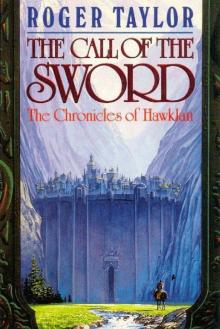 The call of the sword tcoh-1
The call of the sword tcoh-1 Farnor
Farnor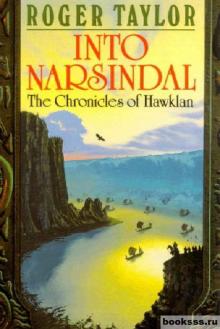 Into Narsindal
Into Narsindal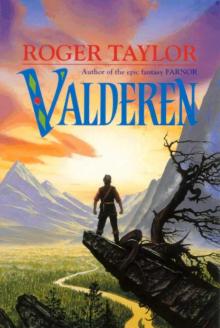 Valderen ft-2
Valderen ft-2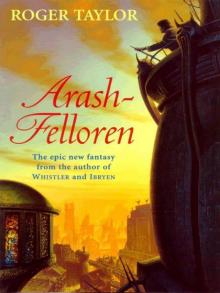 Arash-Felloren
Arash-Felloren The Return of the Sword tcoh-5
The Return of the Sword tcoh-5![Ibryen [A sequel to the Chronicles of Hawklan] Read online](http://i1.bookreadfree.com/i1/03/26/ibryen_a_sequel_to_the_chronicles_of_hawklan_preview.jpg) Ibryen [A sequel to the Chronicles of Hawklan]
Ibryen [A sequel to the Chronicles of Hawklan]![The Call of the Sword [Book One of The Chronicles of Hawklan] Read online](http://i1.bookreadfree.com/i/03/24/the_call_of_the_sword_book_one_of_the_chronicles_of_hawklan_preview.jpg) The Call of the Sword [Book One of The Chronicles of Hawklan]
The Call of the Sword [Book One of The Chronicles of Hawklan]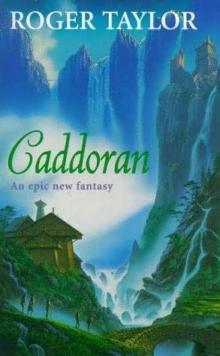 Caddoran
Caddoran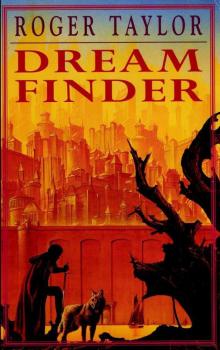 Dream Finder
Dream Finder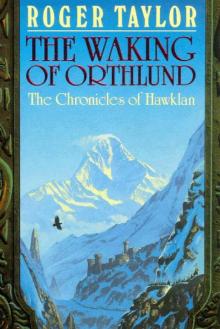 The Waking of Orthlund
The Waking of Orthlund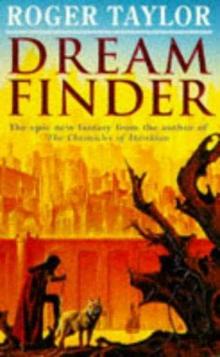 Dream Finder cohs-1
Dream Finder cohs-1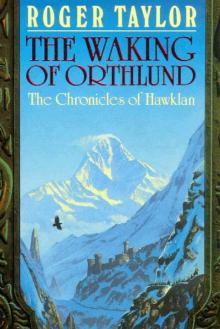 The waking of Orthlund tcoh-3
The waking of Orthlund tcoh-3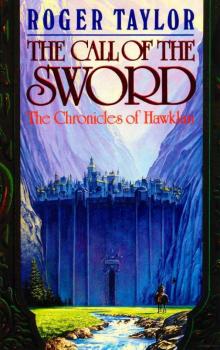 The Call of the Sword
The Call of the Sword The fall of Fyorlund tcoh-2
The fall of Fyorlund tcoh-2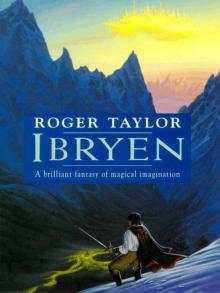 Ibryen
Ibryen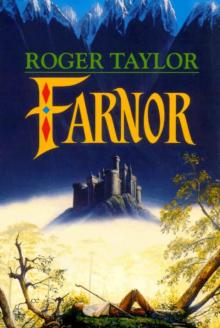 Farnor ft-1
Farnor ft-1 The Return of the Sword
The Return of the Sword![Into Narsindal [Book Four of The Chronicles of Hawklan] Read online](http://i1.bookreadfree.com/i2/04/06/into_narsindal_book_four_of_the_chronicles_of_hawklan_preview.jpg) Into Narsindal [Book Four of The Chronicles of Hawklan]
Into Narsindal [Book Four of The Chronicles of Hawklan]![Valderen [The Second Part of Farnor's Tale] Read online](http://i1.bookreadfree.com/i2/04/05/valderen_the_second_part_of_farnors_tale_preview.jpg) Valderen [The Second Part of Farnor's Tale]
Valderen [The Second Part of Farnor's Tale]![The Fall of Fyorlund [Book Two of The Chronicles of Hawklan] Read online](http://i1.bookreadfree.com/i2/04/08/the_fall_of_fyorlund_book_two_of_the_chronicles_of_hawklan_preview.jpg) The Fall of Fyorlund [Book Two of The Chronicles of Hawklan]
The Fall of Fyorlund [Book Two of The Chronicles of Hawklan]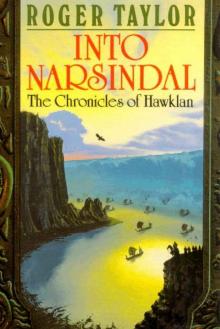 Into Narsindal tcoh-4
Into Narsindal tcoh-4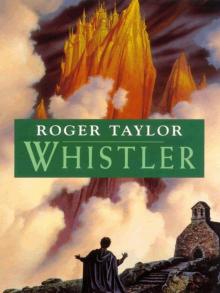 Whistler
Whistler![Whistler [A sequel to The Chronicles of Hawklan] Read online](http://i1.bookreadfree.com/i2/04/12/whistler_a_sequel_to_the_chronicles_of_hawklan_preview.jpg) Whistler [A sequel to The Chronicles of Hawklan]
Whistler [A sequel to The Chronicles of Hawklan] The Fall of Fyorlund
The Fall of Fyorlund![The Waking of Orthlund [Book Three of The Chronicles of Hawklan] Read online](http://i1.bookreadfree.com/i2/04/11/the_waking_of_orthlund_book_three_of_the_chronicles_of_hawklan_preview.jpg) The Waking of Orthlund [Book Three of The Chronicles of Hawklan]
The Waking of Orthlund [Book Three of The Chronicles of Hawklan]